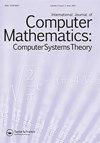非自由支配投入下两阶段网络DEA效率测度的议价博弈模型
IF 0.6
Q3 COMPUTER SCIENCE, THEORY & METHODS
International Journal of Computer Mathematics: Computer Systems Theory
Pub Date : 2020-01-02
DOI:10.1080/23799927.2020.1723708
引用次数: 3
摘要
传统的数据包络分析(DEA)是衡量决策单位效率的一种方法。近年来,为了衡量子决策单元(阶段)的效率,人们开发了几种网络DEA模型,其中网络DEA模型的结果既提供了整个系统的整体效率,也提供了各个阶段的效率。本研究建立了一个讨价还价博弈模型,用于测量具有非自由裁量投入的两阶段网络结构的决策单位的效率,并将该模型作为处理中间措施产生的冲突的方法。在纳什议价博弈论下,网络DEA中的两个阶段被视为参与者,网络DEA模型是一个合作博弈模型。这里,第二阶段的非自由裁量的额外投入改变了合作博弈模型,使得单位管理者在衡量议价博弈模型的效率时无法改变非自由裁量投入的价值,从而导致管理者的期望产出和期望产出无法产生。此外,可以说,这些输入的存在是有能力的,显著影响系统效率得分和阶段。因此,衡量决策单位效率的输入的存在降低了合作博弈的效率得分。在本文中,在存在非自由裁量输入的情况下对模型进行线性化是议价博弈模型中的一个新思路。数值算例表明了该模型的适用性。本文章由计算机程序翻译,如有差异,请以英文原文为准。
A bargaining game model for measuring efficiency of two-stage network DEA with non-discretionary inputs
Conventional data envelopment analysis (DEA) is a method for measuring the efficiency of decision-making units (DMUs). Recently, to measure the efficiency of sub-DMUs (Stages), several network DEA models have been developed, in which the results of network DEA models not only provide the overall efficiency of the whole system but also provide the efficiency of the individual stages. This study develops a bargaining game model for measuring the efficiency of DMUs that have a two-stage network structure with non-discretionary inputs, that the model as a method of dealing with the conflict arising from the intermediate measures. Under the Nash bargaining game theory, the two stages in the network DEA are considered as players and network DEA model is a cooperative game model. Here, the non-discretionary additional inputs in the second stage make changes in the cooperative game model, so that managers of units cannot change the value of non-discretionary inputs in measuring the efficiency of the bargaining game model, and this causes the desired and expected output of the managers not to be produced. In addition, it can be stated that the presence of such inputs is capable, significantly affecting the system efficiency score and stages. So that the existence of the inputs in the measuring efficiency of decision-making units reduces the efficiency score of cooperative game. In this study, linearizing the model in the presence of the non-discretionary input is a new idea in the bargaining game model. A numerical example shows the applicability of the new model.
求助全文
通过发布文献求助,成功后即可免费获取论文全文。
去求助
来源期刊

International Journal of Computer Mathematics: Computer Systems Theory
Computer Science-Computational Theory and Mathematics
CiteScore
1.80
自引率
0.00%
发文量
11
 求助内容:
求助内容: 应助结果提醒方式:
应助结果提醒方式:


